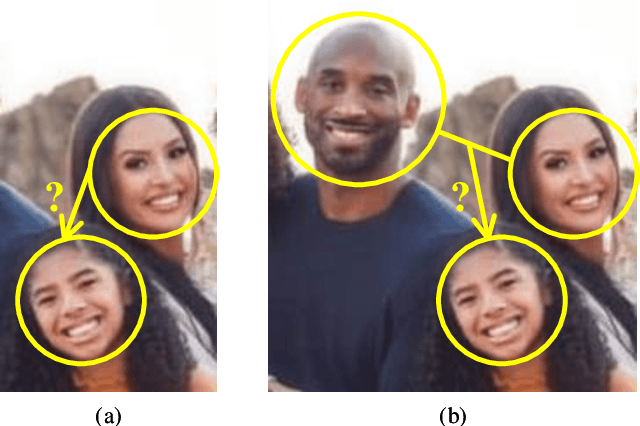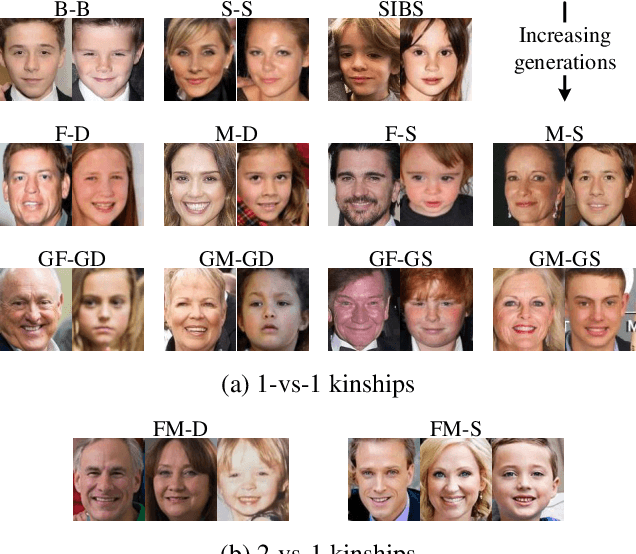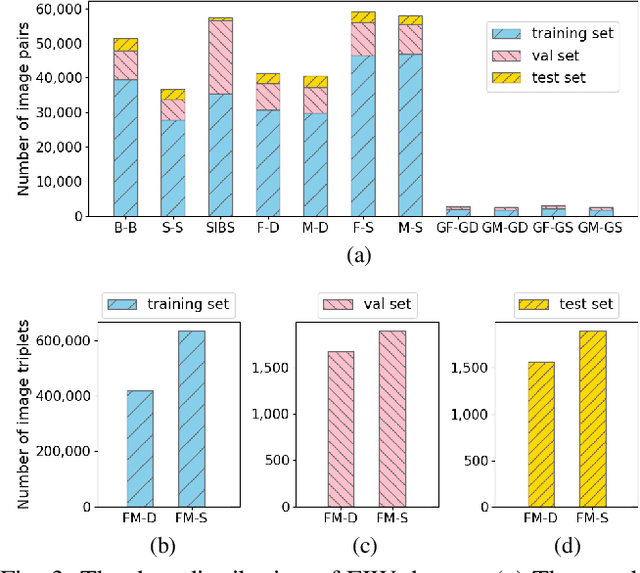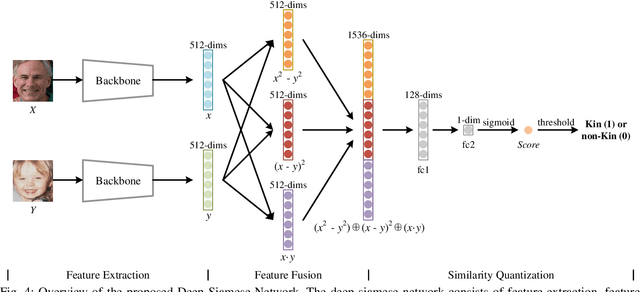Deep Fusion Siamese Network for Automatic Kinship Verification
Paper and Code
Jun 07, 2020



Automatic kinship verification aims to determine whether some individuals belong to the same family. It is of great research significance to help missing persons reunite with their families. In this work, the challenging problem is progressively addressed in two respects. First, we propose a deep siamese network to quantify the relative similarity between two individuals. When given two input face images, the deep siamese network extracts the features from them and fuses these features by combining and concatenating. Then, the fused features are fed into a fully-connected network to obtain the similarity score between two faces, which is used to verify the kinship. To improve the performance, a jury system is also employed for multi-model fusion. Second, two deep siamese networks are integrated into a deep triplet network for tri-subject (i.e., father, mother and child) kinship verification, which is intended to decide whether a child is related to a pair of parents or not. Specifically, the obtained similarity scores of father-child and mother-child are weighted to generate the parent-child similarity score for kinship verification. Recognizing Families In the Wild (RFIW) is a challenging kinship recognition task with multiple tracks, which is based on Families in the Wild (FIW), a large-scale and comprehensive image database for automatic kinship recognition. The Kinship Verification (track I) and Tri-Subject Verification (track II) are supported during the ongoing RFIW2020 Challenge. Our team (ustc-nelslip) ranked 1st in track II, and 3rd in track I. The code is available at https://github.com/gniknoil/FG2020-kinship.
 Add to Chrome
Add to Chrome Add to Firefox
Add to Firefox Add to Edge
Add to Edge